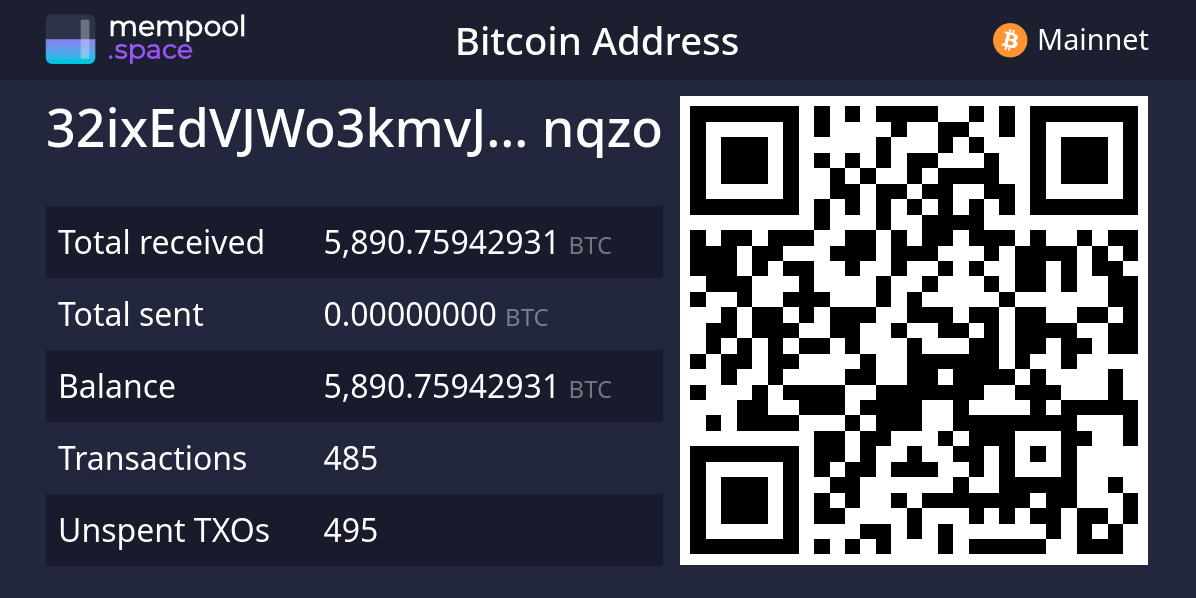Hey, friend! Picture this: I’m chilling, scrolling through today’s crypto news, when I stumble across a wild headline—a quantum computing group is dangling a shiny Bitcoin (worth a cool $100,000+) to anyone who can crack Bitcoin’s cryptographic key. My jaw drops. Is this the crypto heist of the century or just a nerdy stunt? Let’s unpack this Bitcoin Quantum Computing saga together, like we’re chatting over a warm croissant. Trust me, it’s a wild ride!
Back in college, I tried to impress my econ professor by tossing around “cryptographic algorithms” in a presentation. Spoiler: I butchered the pronunciation, turned beet red, and learned to stick to simple terms. So, I’ll keep this fun and clear—no jargon overload. Ready to dive into the quantum deep end? Let’s go!
Table of Contents
- Key Takeaways
- What’s This Bitcoin Quantum Computing Buzz?
- The Q-Day Prize: A Crypto Cracker’s Dream
- Is Bitcoin Really at Risk?
- What Can You Do About It?
- FAQs
Key Takeaways
- A quantum computing group, Project Eleven, is offering 1 BTC to break Bitcoin’s elliptic curve cryptography (ECC) using a quantum computer.
- Bitcoin Quantum Computing poses a future threat, as quantum machines could crack ECC with Shor’s algorithm, risking over 6 million BTC ($500 billion).
- Current quantum computers (like IBM’s Heron at 156 qubits) are far from the 2,000 logical qubits needed to break Bitcoin’s keys.
- Bitcoin developers are proactively exploring quantum-resistant solutions, like the Quantum-Resistant Address Migration Protocol (QRAMP).
- For now, your crypto’s safe, but moving funds to modern, quantum-resistant wallets is a smart move.
What’s This Bitcoin Quantum Computing Buzz?

So, here’s the deal: Project Eleven, a quantum computing crew with a knack for stirring the pot, just launched the “Q-Day Prize.” They’re offering one whole Bitcoin to the first team that uses a quantum computer to crack an elliptic curve cryptographic (ECC) key—the tech that keeps Bitcoin’s blockchain Fort Knox-level secure. This isn’t about hacking your neighbor’s wallet (phew!); it’s a challenge to test if Bitcoin Quantum Computing can break the system’s backbone.
Now, quantum computers aren’t your average laptops. They use qubits, which can exist in multiple states at once (think Schrödinger’s cat, but nerdier). This superpower lets them solve crazy-complex math problems—like the ones securing Bitcoin—way faster than classical computers. The catch? We’re not there yet, but the idea of Bitcoin Quantum Computing cracking crypto keys has folks buzzing.
Advertisement
Join Gemini today and get $15 in free Bitcoin when you trade with an easy, secure and U.S.-regulated crypto exchange you can trust. Offer valid for U.S. residents only; crypto investments are risky.
The Q-Day Prize: A Crypto Cracker’s Dream
Imagine a global treasure hunt, but instead of gold, it’s a Bitcoin dangling like a carrot for quantum brainiacs. Project Eleven’s Q-Day Prize is exactly that. They want someone to use Shor’s algorithm (more on that in a sec) on a quantum computer to break a “toy version” of Bitcoin’s ECC key. No shortcuts, no cheats—just pure quantum muscle.
Why Bitcoin Quantum Computing Matters
Here’s why this matters: Bitcoin’s security relies on ECC, which uses math so tough it’d take a classical supercomputer billions of years to crack. But a beefy quantum computer? It could do it in hours. Project Eleven says over 6 million BTC—worth $500 billion—could be at risk if quantum computers hit that level. That’s like leaving your life savings in a piggy bank with a flimsy lock.
Plus, this isn’t just about Bitcoin. ECC secures Ethereum, VPNs, and even your online banking. If Bitcoin Quantum Computing cracks this, it’s a domino effect across the digital world.
Shor’s Algorithm: The Quantum Key-Breaker
Now, let’s talk Shor’s algorithm—the quantum equivalent of a skeleton key. Invented by Peter Shor, this algorithm can factor giant numbers into primes crazy fast, which is bad news for ECC. Bitcoin’s private keys rely on math that’s a fortress against classical computers but a paper wall against Shor’s quantum attack. The Q-Day Prize is basically saying, “Show us you can pick this lock, and you’re a crypto legend.”
Is Bitcoin Really at Risk?
Okay, don’t panic just yet. I once freaked out thinking my old laptop could be hacked by a kid with a coding book—turns out, it was just slow from too many cat videos. Similarly, Bitcoin Quantum Computing isn’t an immediate threat. Let’s break it down.
Bitcoin Quantum Computing’s Current State
Today’s quantum computers are like toddlers—cute, promising, but not ready to run a marathon. IBM’s Heron chip has 156 qubits, Google’s Willow has 105, but cracking a 256-bit ECC key needs around 2,000 logical qubits (error-corrected ones). Experts think we’re a decade away from that.
Some X posts are hyping the danger, like one claiming quantum computers could “crack Bitcoin’s encryption in seconds by 2030.” Cool it, @chiragjetani—that’s speculative. Even Google says their Willow chip can’t touch modern cryptography yet.
The Race to Quantum-Proof Bitcoin
Here’s the good news: Bitcoin’s not sitting duck. Developers are already on it. A Bitcoin Improvement Proposal (BIP) called the Quantum-Resistant Address Migration Protocol (QRAMP) suggests moving BTC to quantum-safe wallets before the quantum apocalypse hits.
Plus, cryptographers are cooking up post-quantum cryptography (PQC), like lattice-based algorithms, that even quantum computers can’t crack. Adam Back, a bigwig at Blockstream, thinks PQC could make Bitcoin’s signatures stronger than ever. It’s like upgrading from a bike lock to a vault.
What Can You Do About It?
So, what’s a crypto fan to do? First, chill—your Bitcoin’s safe for now. But here are some pro tips to stay ahead of the Bitcoin Quantum Computing curve:
- Move to Modern Crypto Wallets: Older Pay-To-Public-Key (P2PK) wallets from pre-2012 are most vulnerable. Transfer your BTC to a Taproot or SegWit address, which hides your public key until you spend.
- Stay Informed: Follow Bitcoin devs on X or check TheBitcoinDictionary for updates on quantum-resistant upgrades. Knowledge is power!
- Diversify: Don’t put all your eggs in one crypto basket. If quantum tech shakes things up, other assets might weather the storm better.
I learned this the hard way when I sank my savings into a single stock, only to watch it tank. Now, I spread my bets—crypto, stocks, even a quirky coffee shop investment. Balance is key!
FAQs
Q: Can quantum computers break Bitcoin today?
A: Nope! Current quantum computers lack the qubits (think 2,000 vs. today’s 156) to crack Bitcoin’s ECC. You’re safe for now.
Q: What’s the Q-Day Prize?
A: Project Eleven’s offering 1 BTC to anyone who breaks a toy ECC key using a quantum computer and Shor’s algorithm. It’s a test of Bitcoin Quantum Computing threats.
Q: Should I sell my Bitcoin because of quantum risks?
A: Hold your horses! The threat’s years away, and developers are working on quantum-proof fixes. Keep an eye on upgrades instead.
Q: How can I protect my Bitcoin from quantum attacks?
A: Move your BTC to a modern wallet (like Taproot) that’s less exposed to quantum attacks. Stay updated on PQC developments.
Wrapping Up the Bitcoin Quantum Computing Adventure
Phew, what a journey! The Q-Day Prize is like a geeky reality show, pushing the limits of Bitcoin Quantum Computing while reminding us that crypto’s future hinges on staying one step ahead. For now, Bitcoin’s secure, but the quantum clock’s ticking. By moving to safer wallets and keeping tabs on dev upgrades, you’ll be ready for whatever quantum curveballs come next.
So, grab another coffee, check your wallet, and let’s keep this crypto convo going. And hey, let’s avoid my college blunder: keep it simple, and we’ll all stay on the same page.






